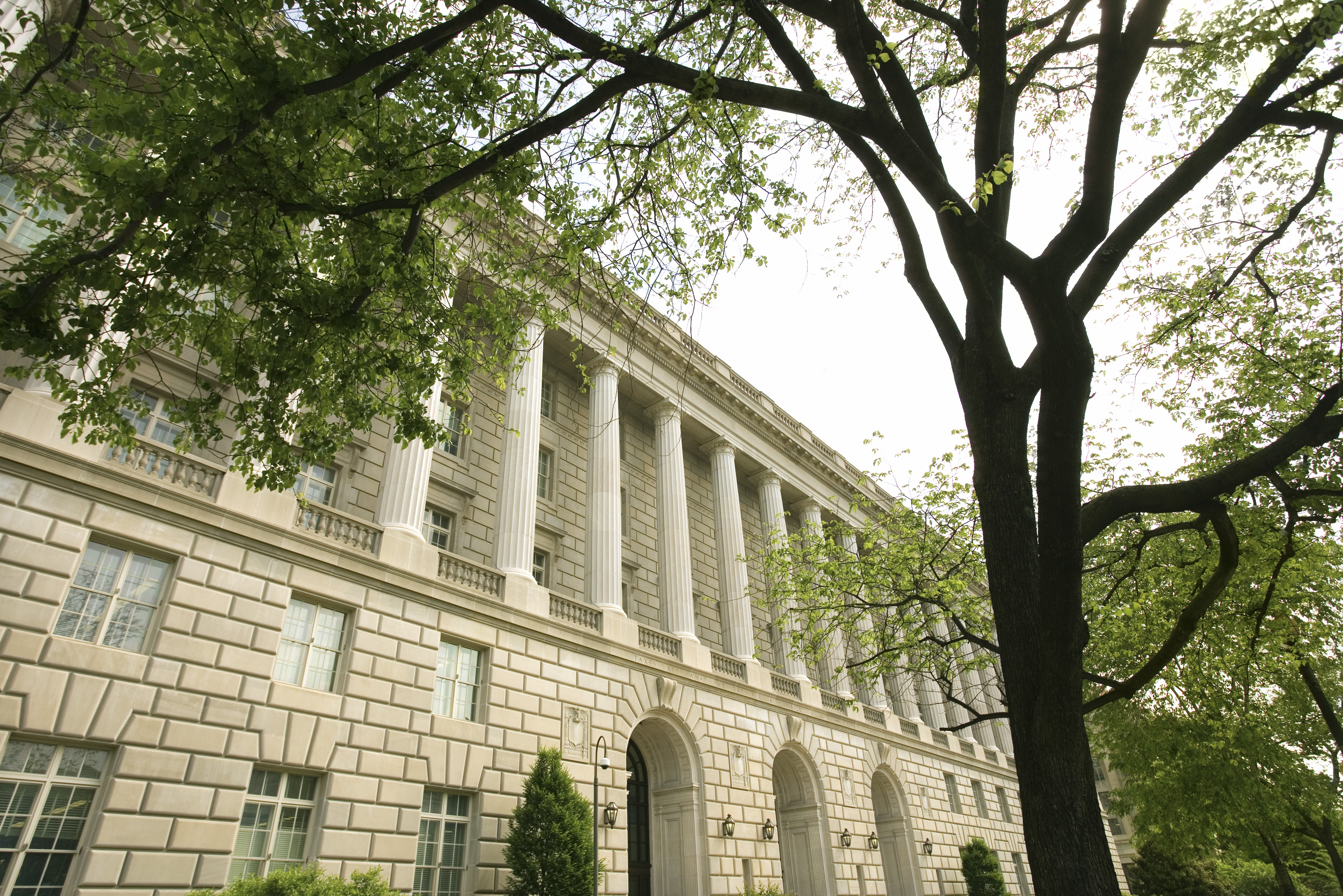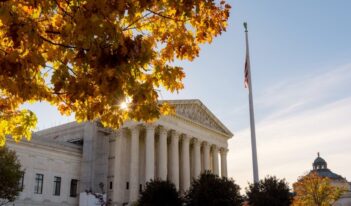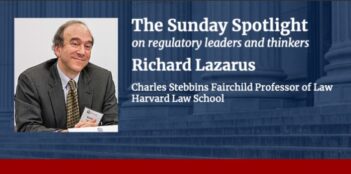
Provisions of the Senate’s Regulatory Accountability Act would do more harm than good.
U.S. Senators Rob Portman (R-Ohio) and Heidi Heitkamp (D-N.D.) created quite a stir in the regulatory community when they recently introduced a new version of the Regulatory Accountability Act. The bill—which proposes some of the most far-reaching legislative changes to the agency rulemaking process since the Administrative Procedure Act of 1946—generally aims to make it harder for agencies to issue new rules. But, in a little-noticed section, the bill also urges a potentially more sweeping change by attempting to regulate agency advocacy (or, in the far more pejorative language of the bill, agency “propaganda”).
Regardless of the merits or demerits of the rest of the bill’s proposed changes to the rulemaking process, these ill-conceived and possibly disastrous provisions on agency advocacy should not survive the legislative process.
The problematic provisions are deceptively simple and decidedly vague. Simply put, once an agency issues a notice of a proposed rulemaking, it would be prohibited from communicating with the public in a way that (a) “directly advocates, in support of or against the proposed rule, for the submission of information that will form part of the record for the proposed rule,” (b) “appeals to the public, or solicits a third party, to undertake advocacy of or against the proposed rule,” or (c) “is directly or indirectly for the purpose of publicity or propaganda within the United States in a manner that Congress has not authorized.”
These provisions, collectively entitled “Prohibition on Certain Communications,” closely resemble another piece of proposed legislation introduced in the U.S. House of Representatives earlier this year. In both instances, the impetus for the proposed restrictions can be traced to controversy over the U.S. Environmental Protection Agency’s (EPA) “waters of the United States” rule. There, a farmer advocacy group started a social media campaign opposing the rule. The group urged its followers to ask EPA to #DitchtheRule, and another group contributed to the cause by adapting a popular Disney ballad to support its message: “That’s enough, that’s enough.” EPA responded in kind, coordinating a message-sharing campaign, sharing links hosted by external organizations, and creating its own hashtags, #DitchtheMyth and #CleanWaterRules.
In response to a request from U.S. Senator James Inhofe (R-Okla.), the U.S. Government Accountability Office (GAO) initiated an inquiry and, in 2015, found that some of EPA’s social media outreach during that rulemaking violated certain restrictions in appropriations laws by concealing that EPA was the source of the message. But, critically, the GAO also concluded that neither of EPA’s hashtag campaigns violated existing prohibitions against publicity, propaganda, or self-aggrandizement, largely because EPA’s use of its logo and Twitter handle “identified EPA to the intended audience as the source of the information.”
The communications provisions in the Regulatory Accountability Act would foreclose even that kind of careful, well-identified public engagement via social media. Under the terms of the bill, it would not matter whether EPA honestly identified itself in communications with the public. Framed as it is, the provisions seem to envision a world where agencies engaged in rulemaking act more like courts than policymakers—that is, as passive observers and neutral arbiters. Perhaps in certain contexts this would make sense, given the bill’s more general push to reinvigorate the Administrative Procedure Act’s trial-like formal rulemaking procedures. But, in fact, the provisions would apply even when agencies engage in ordinary notice-and-comment rulemaking, which has long been praised precisely because of the opportunity it affords agencies to interface freely with the public.
This reimagining of the normative ground rules for the rulemaking process is seriously misguided. For one thing, as others have noted, the operative terms of the proposed provisions are irreducibly vague—What makes a communication “advocacy” and not simply an effort to inform? As the Center for Progressive Reform points out, these kinds of interpretive landmines mean that the legislation would likely invite “wasteful litigation” and “have a chilling effect that discourages agency officials from engaging in otherwise proper communications with the public meant to encourage their participation.”
Beyond that, the provisions are fundamentally one-sided in focusing only on positive communications from agencies. Whether agencies intend it or not, silence can often send as much of a message as any outward vocalization. Presumably, EPA’s recent efforts to withdraw scientific information on climate change from its website were undertaken for communicative purposes that we might classify as “advocacy” or “propaganda.” It is not hard to imagine, as well, a court-ordered or statutorily mandated rulemaking (disapproved of by the Trump Administration) in which the agency’s conspicuous silence, failure to correct misinformation, or active concealment of data reveal the Administration’s position and shape the public dialogue in the same ways that a social media campaign might. If the goal is to control propaganda, the proposed bill misses half the battle.
I am willing to assume that the Regulatory Accountability Act’s communications provisions reflect good intentions. The prevailing narrative at the moment is that agencies are overly politicized, and the bill’s communications provisions are more or less an effort to de-politicize agencies and restore respect and legitimacy to the process. After all, who in principle opposes efforts to curb government “propaganda,” especially in an era of so-called alternative facts?
But however good the intentions may be, the proposed restrictions on certain agency communications cannot do the hard work of extracting agencies from politics. Agencies are not courts; they are inescapably immersed in political decision making. As is so often the case with efforts to police expression of ideas in the public sphere, the end result is likely to be greater distrust of the administrative process, as participants come to view policymaking as unresponsive and uninspired, and as they observe proposed rules going undefended from attack from increasingly sophisticated “propaganda” campaigns initiated by certain limited segments of the general public.
In short, we would be better off #DitchingTheRestrictions and letting agencies self-regulate their expression.
This essay is part of a series, entitled Assessing the Regulatory Accountability Act.
The photograph above is of the U.S. Environmental Protection Agency’s headquarters in Washington, D.C.




